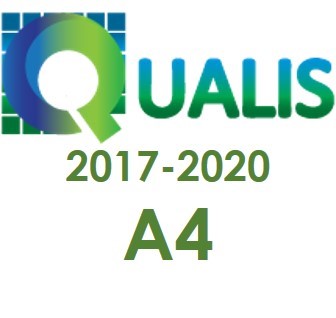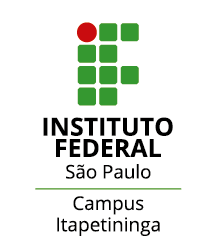Rhizomatic methodology applied to the development of complex thinking in the training process
Keywords:
complexity; rhizomatic methodology, rhizome, complex thought, formative process.Abstract
This article aims to assess the relevance of the application of rhizomatic methodology in the analysis of complex thinking in the training process. The rhizomatic methodology enables the construction in mutual (of) construction and articulated reorganization of knowledge, through three stages: segmentation, mesetization and deterritorialization as part of a map under construction. Therefore, this process favors the emergence of complex thinking or in formative processes, which are characterized by their high complexity. This work derives from the doctoral thesis: Methodological strategy for the development of complex thinking in the formative process of nutrition students of the University of El Salvador
Downloads
References
ANDRADE, J. A. La investigación relacional y sus pilares: complejidad, rizoma y transdisciplina. Em: INSUASTY, A. et al. (Eds.). Reflexiones sobre investigación integrativa. Una perspectiva inter y transdisciplinar. (65–89). Medellín: Grupo de Investigación y Editorial Kavilando, 2019. 65–89.
ANDRADE, J. A. Investigación relacional y rizoma investigativo: apuntes para su aplicación metodológica. Palacios, Daniel ed. Medellín: Editorial Bonaventuriana, 2021.
ANDRADE, J. A. Complejidad decolonizadora: aproximaciones desde el paradigma de la complejidad de Edgar Morin. Cadernos de Pesquisa, 29(4), 13–27, 2022.
ANDRADE, J. A. Las prácticas investigativas: una perspectiva decolonial-compleja. Debates em Educação, 15(1), 1–16, 2023.
ANDRADE, J. A.; RIVERA, R. La investigación una perspectiva relacional. Bogotá: Fundación Universitaria del Área Andina, 2019.
AUBERT, A.; GARCIA, C.; RACIONERO, S. El aprendizaje dialógico. Cultura y Educación, 1(2), 129–139, jun. 2009.
BARR, R.; TAGG, J. Evaluación educativa: De la enseñanza al aprendizaje, un nuevo paradigma para la educación de pregrado. CONAEVA, 27(6), 1–18, 1995.
CIURANA, E. R. Complejidad. Elementos para una definición. Acta sociológica, 32, 85–117, 2001.
DELEUZE, G.; GUATTARI, F. Rizoma (Mil Mesetas 1980). Paris: Minuit, 1980.
ESTEBARANZ GARCÍA, A. Didáctica e innovación curricular. 2. ed. Sevilla: [s.n.].
FIGUEROA, H. Conceptualización Del “Curriculum Ausente” Como Herramienta de Análisis en el Diseño y la Gestión Curricular. Redised, 1(1), 48–69, 2019.
FRANCO, Z. G.; PONCE, B. J. Diálogo entre currículo e territórios das crianças Ribeirinhas. Debates em Educação, 14, 421–444, 10 jun. 2022.
HARVEY, L.; GREEN, D. Defining Quality. Assessment & Evaluation in Higher Education. Assessment & Evaluation in Higher Education, 18, 9–34, 1999.
JENSEN, E. Cerebro y Aprendizaje: Competencias Educativas e implicaciones. Madrid: Narcea Ediciones, 2003.
LEAVELL, H.; CLARK, E. Prevent Medicine for the Doctor in his Community. Modelo de Leavell and Clark. New York: Editorial MacGraw-Hill, 1965.
LUPASCO, S. Le principe d’antagonisme et la logique de l’énergie, Paris. Monaco : édition du Rocher, 1987.
MAGENDZO, A. Currículum y cultura en América Latina. Santiago de Chile : PIIE, 1986.
MAGENDZO, A. Transversalidad y Currículum. 1. ed. Bogotá: Cooperativa Editorial Magisterio, 2003.
MAGENDZO, A.; DONOSO, P. Diseño Curricular Problematizador en la enseñanza de los Derechos Humanos. Santiago de Chile: IIDH - PIIE, 1992.
MARTÍNEZ-ÁLVAREZ, F.; ORTIZ HERNÁNDEZ, E.; GONZÁLEZ MORA, A. Hacia una epistemología de la transdisciplinariedad. Humanidades Médicas, 7(2), 2007.
MORIN, E. El paradigma perdido. Ensayo de bioantropología. Barcelona: Editorial Kairós, 1973.
MORIN, E. El método I. La naturaleza de la naturaleza. 6a edición ed. Madrid: Editorial Cátedra. Colección Teorema Serie mayor, 1977.
MORIN, E. Introducción al pensamiento complejo. México: Editorial Gedisa, 1998.
MORIN, E. Los siete saberes necesarios para la educación a futuro. Barcelona: UNESCO. Organización de las naciones unidas para la educación, la ciencia y la cultura, 1999.
MORIN, E.; DELGADO, C. Reinventar la educación. Hacia una metamorfosis de la humanidad, 2014.
MORIN, E.; MOTA, R. Los Principios Generativos y Estratégicos del Método. Educar en la era planetaria, 10, 27–33, 2002.
NICOLESCU, B. La transdisciplina. Manifiesto. Mónaco: Du Rocher, 1996.
PFANNKUCH, M.; WILD, C. The Challenge of Developing Statistical Literacy, Reasoning and Thinking. Em: Towards an Understanding of Statistical Thinking. [s.l: s.n.]. 17–46.
RODRÍGUEZ, M. E. Deconstrucción: un transmétodo rizomático transcomplejo en la transmodernidad. Sinergias educativas, 3(1), 2019.
RODRÍGUEZ, M. E. La decolonialidad planetaria como urgencia de la complejidad como transmetódica. Revista Perspectivas Metodológicas, 21, 2021.
RODRÍGUEZ, M. E. Sentient Transphilosophy. Itapetininga: Edições Hipótese, 2022.
SÁNCHEZ-SAMAYOA, M. Historia de la Nutrición. Tesis de Maestría—Guatemala: Universidad de San Carlos de Guatemala, 2004.
SCHNEIDER, D. “El diseño de estrategia de enseñanza” Desarrollo perteneciente al módulo. Diseño de intervenciones educativas en línea. Buenos Aires: FLACSO, 2009.
TOBAR-QUINTERO, L. La reforma universitaria en El Salvador: contexto social y político 1963-1980. Revista Científica Multidisciplinaria de la Universidad de El Salvador - Revista Minerva, 3(2), 166–174, 2020.
UNIVERSIDAD DE EL SALVADOR - UES. Modelo educativo de la Escuela de Tecnología Médica. San Salvador, 1992. Disponível em: <http://www.uaeh.edu.mx/docencia/docs/modelo_educativo_UAEH.pdf>. Consultado el: 16 abr. 2023
UNIVERSIDAD DE EL SALVADOR - UES. Escuela de Ciencias de la Salud. Secretaria General. San Salvador Universidad de El Salvador - UES, 2021. Disponible em: <http://secretariageneral.ues.edu.sv/index.php?option=com_content&view=article&id=10&Itemid=49>. Consultado el: 16 abr. 2023
VILA-MORALES, D.; HERMINIA-HERNÁNDEZ, I.; MARTÍNEZ-ÁLVAREZ, I. El diseño curricular doctoral desde la perspectiva transdisciplinaria Doctoral. Revista Cubana de Educación Superior, 1, 114–129, 2016.
Downloads
Published
How to Cite
Issue
Section
License
Copyright (c) 2023 Revista Internacional de Formação de Professores

This work is licensed under a Creative Commons Attribution-NonCommercial-ShareAlike 4.0 International License.



 Este trabalho está licenciado sob uma licença
Este trabalho está licenciado sob uma licença 